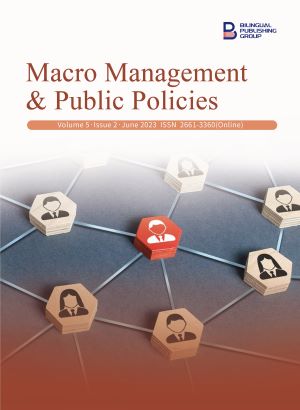-
1046
-
388
-
266
-
247
-
231
VIKOR Method—An Effective Compromising Ranking Technique for Decision Making
DOI:
https://doi.org/10.30564/mmpp.v5i2.5578Abstract
The VIKOR (VlseKriterijumska Optimizacija I Kompromisno Resenje) method, which is a multi-criteria decision-making method, is examined in this paper. The VIKOR method, like other MCDM techniques such as the Technique for Order of Preference by Similarity to Ideal Solution (TOPSIS), is widely used to solve complex decision-making problems in various fields such as engineering, management, and finance. This paper provides an overview of the VIKOR method, including its application areas, advantages, and disadvantages. Besides, in this survey paper, the process steps of the VIKOR method are described, including determining the decision matrix, normalizing the matrix, determining the weights of the criteria, calculating the utility and regret values, calculating the VIKOR index, and finally ranking the alternatives. By providing an overview of the VIKOR method and its process steps, this paper aims to provide a better understanding of the method and its potential application in different decision-making contexts.
Keywords:
Decision making; Multi criteria decision making; VIKOR method; VlseKriterijumska Optimizacija I Kompromisno Resenje; Multi attribute decision makingReferences
[1] Taherdoost, H., Madanchian, M., 2023. Multi-Criteria Decision Making (MCDM) methods and concepts. Encyclopedia. 3(1), 77-87.
[2] Taherdoost, H., Madanchian, M., 2020. Prioritization of leadership effectiveness dimensions improving organizational performance via analytical hierarchy process (AHP) technique: A case study for malaysia’s digital service SMEs. Digital Transformation and Innovative Services for Business and Learning. IGI Global. 1-21.
[3] Wei, J., Lin, X. (editors), 2008. The multiple attribute decision-making VIKOR method and its application. 2008 4th International Conference on Wireless Communications, Networking and Mobile Computing; 2008 Oct 12-14; Dalian. New York: IEEE. p. 1-4.
[4] San Cristóbal, J.R., 2011. Multi-criteria decision-making in the selection of a renewable energy project in spain: The Vikor method. Renewable Energy. 36(2), 498-502.
[5] Zimonjić, S., Đekić, M., Kastratović, E., 2018. Application of vikor method in ranking the investment projects. Journal of International Economic Law. 8, 125-134.
[6] Jalaliyoon, N., Taherdoost, H., Zamani, M., 2010. Utilizing the BSC and EFQM as a combination framework; Scrutinizing the possibility by TOPSIS method. International Journal of Business Research and Management. 1(3), 169-182.
[7] Ceballos, B., Lamata, M.T., Pelta, D.A., 2016. A comparative analysis of multi-criteria decision-making methods. Progress in Artificial Intelligence. 5(4), 315-322.
[8] Opricovic, S., 1998. Multicriteria optimization of civil engineering systems. Faculty of Civil Engineering, Belgrade. 2(1), 5-21.
[9] Opricovic, S., Tzeng, G.H., 2004. Compromise solution by MCDM methods: A comparative analysis of VIKOR and TOPSIS. European Journal of Operational Research. 156(2), 445-455.
[10] Mardani, A., Zavadskas, E.K., Govindan, K., et al., 2016. VIKOR technique: A systematic review of the state of the art literature on methodologies and applications. Sustainability. 8(1), 37.
[11] Zheng, G., Wang, X., 2020. The comprehensive evaluation of renewable energy system schemes in tourist resorts based on VIKOR method. Energy. 193, 116676.
[12] Mančev, M., 2013. Service quality management in the libraries at the University of Niš Faculties using the VIKOR method. Journal INFO Theca.14(1), 15-25.
[13] Chatterjee, P., Chakraborty, S., 2016. A comparative analysis of VIKOR method and its variants. Decision Science Letters. 5(4), 469-486.
Downloads
How to Cite
Issue
Article Type
License
Copyright © 2023 Hamed Taherdoost, Mitra Madanchian

This is an open access article under the Creative Commons Attribution-NonCommercial 4.0 International (CC BY-NC 4.0) License.




 Hamed Taherdoost
Hamed Taherdoost

